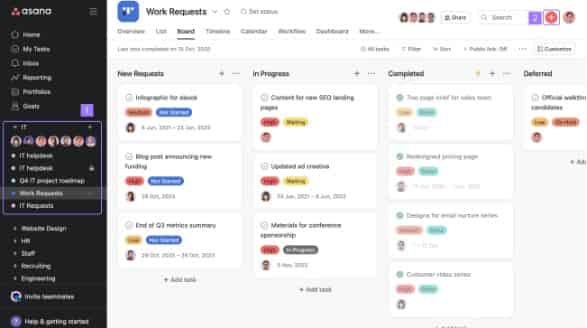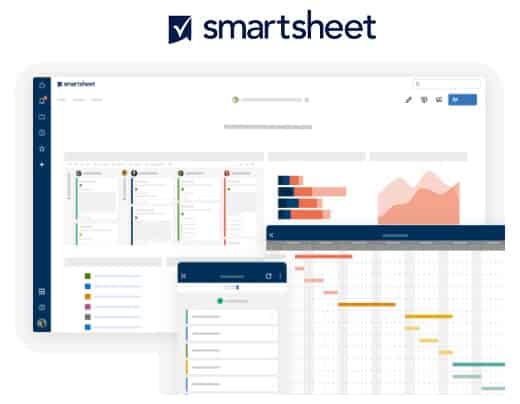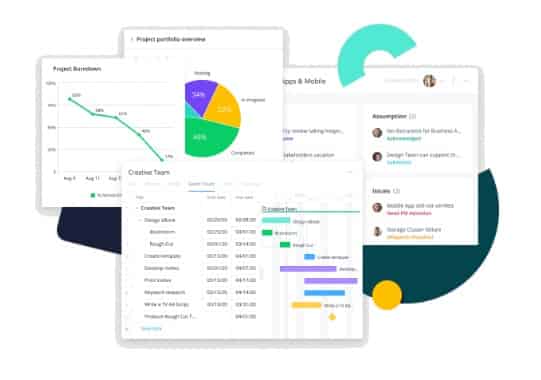Project management is a critical aspect of any business, and scheduling is an essential part of it. The ability to effectively manage projects and ensure that all tasks are completed on time is key to the success of any project. This is where project scheduling software comes in.
In this article, we will discuss what project scheduling software is, its benefits, and how it can help improve your project management processes and some of the top and best project scheduling software.
What is Project Scheduling Software?
Project scheduling software is a tool used by project managers to create and manage project schedules. It allows users to assign tasks, set deadlines, track progress, and allocate resources. The software provides real-time visibility into the project, enabling project managers to identify potential issues and make adjustments to the schedule to ensure that the project stays on track.
Benefits of Project Scheduling Software
Project scheduling software offers several benefits, including:
- Improved Efficiency: Project scheduling software automates many manual tasks, such as data entry, task allocation, and progress tracking. This frees up project managers to focus on more important tasks, such as problem-solving and decision-making.
- Increased Collaboration: Project scheduling software allows team members to collaborate and share information in real time. This improves communication, reduces the risk of miscommunication, and ensures that everyone is on the same page.
- Better Resource Allocation: Project scheduling software enables project managers to allocate resources effectively, ensuring that resources are used efficiently and effectively. This reduces the risk of overallocation or under allocation of resources, which can lead to project delays or cost overruns.
- Improved Risk Management: Project scheduling software allows project managers to identify potential risks and make adjustments to the schedule to mitigate them. This reduces the likelihood of delays, cost overruns, or other project issues.
How Project Scheduling Software Can Help Improve Your Project Management Processes
Implementing project scheduling software can help improve your project management processes in several ways, including:
- Simplified Planning: Project scheduling software simplifies the planning process by providing a centralized platform for creating and managing project schedules. This ensures that all team members have access to the latest information, reducing the risk of miscommunication or delays.
- Real-time Progress Tracking: Project scheduling software provides real-time visibility into the project, enabling project managers to track progress and identify potential issues. This ensures that the project stays on track and reduces the risk of delays or cost overruns.
- Improved Resource Management: Project scheduling software enables project managers to allocate resources effectively, ensuring that resources are used efficiently and effectively. This reduces the risk of overallocation or under allocation of resources, which can lead to project delays or cost overruns.
- Enhanced Collaboration: Project scheduling software enables team members to collaborate and share information in real time. This improves communication, reduces the risk of miscommunication, and ensures that everyone is on the same page.
Top Project Scheduling Software
1. Microsoft Project

A comprehensive project management software that offers scheduling, resource management, and reporting capabilities. It is suitable for large enterprises and has a range of pricing plans available.
2. Asana

A cloud-based project management tool that allows teams to collaborate, plan, and track progress in real-time. It offers a range of features, including task management, project tracking, and reporting.
3. Trello

A simple and intuitive project management tool that uses a Kanban-style board to manage tasks and projects. It offers features such as task management, team collaboration, and real-time updates.
4. Smartsheet

A cloud-based project management tool that offers a range of features, including project scheduling, task management, and collaboration. It is suitable for businesses of all sizes and has pricing plans to suit different budgets.
5. Wrike

A project management tool that offers a range of features, including task management, project scheduling, and team collaboration. It is suitable for businesses of all sizes and has a range of pricing plans available.
Conclusion
When choosing a project scheduling software, it’s important to consider your business needs, team size, budget, and the features and functionalities you require. It’s also a good idea to try out different options with free trials or demos to see which software works best for your team.
